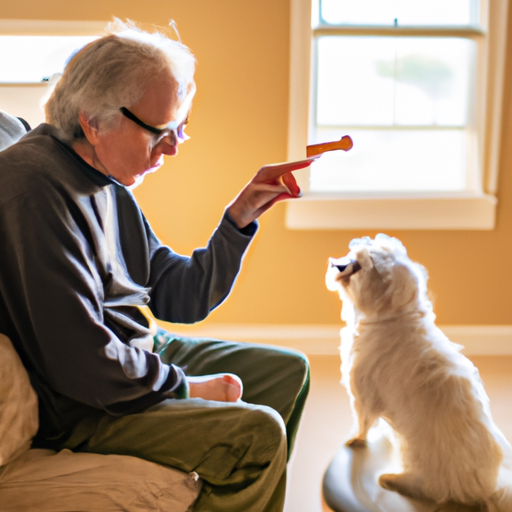Introduction
Training a dog is not an age-specific task. Whether your canine companion is a puppy or a senior, training is an essential part of their life. However, training an older dog can present unique challenges and rewards. This guide will help you navigate through the twists and turns of training an older dog.
Why Train an Older Dog?
You might be wondering, “Why should I train my older dog?” The answer is simple:
- To Improve Behavior: Older dogs can develop bad habits over the years. With the right training, you can correct these behaviors and improve their overall demeanor.
- To Boost Mental Health: Training stimulates your dog’s mind, keeping them alert and engaged. This is particularly crucial for older dogs as it can help slow cognitive decline.
- To Strengthen Your Bond: Training is an excellent way to enhance your relationship with your pooch. It builds trust and mutual respect.
How to Begin Training Your Older Dog
Training an older dog requires a gentle approach. Here are some steps to get you started:
- Evaluate Your Dog’s Health: Before starting any training, consult with your veterinarian to ensure your dog is physically capable of training exercises.
- Start With Basic Commands: Begin with simple commands like “sit”, “stay”, and “come”.
- Use Positive Reinforcement: Always reward good behavior with treats, praise, or play. This encourages your dog to repeat the behavior.
- Be Consistent: Consistency is key in dog training. Use the same commands and rewards each time.
- Maintain Patience: Remember, older dogs may not learn as quickly as puppies. Be patient and give them time to grasp new commands.
Table of Commands and Actions
| Command | Action |
|---|---|
| Sit | Dog sits down |
| Stay | Dog stays in place |
| Come | Dog comes to you |
| Lie Down | Dog lies down |
| Leave It | Dog stops what they are doing |
Dealing With Common Behavior Problems
Older dogs can sometimes develop behavior problems like excessive barking or chewing. Here are some tips on how to handle these issues:
- Excessive Barking: Determine the cause of the barking. If it’s due to boredom, provide more mental and physical stimulation. If it’s anxiety-based, consider seeking professional help.
- Chewing: Provide chew toys to deter them from chewing on furniture or shoes.
- Aggression: Aggression can be a sign of an underlying health issue. Consult with a vet or a professional dog trainer.
Frequently Asked Questions
Q: Can you teach an old dog new tricks?
A: Absolutely! With patience, consistency, and positive reinforcement, older dogs can learn new commands and tricks.
Q: Is it harder to train an older dog than a puppy?
A: It can be challenging due to ingrained behaviors and potential health issues, but it’s certainly not impossible.
Q: How long should training sessions be for older dogs?
A: Shorter, more frequent sessions work best. Aim for 5-15 minutes at a time.
Training an older dog can be a rewarding endeavor. Remember, patience and understanding are key. Happy training!



